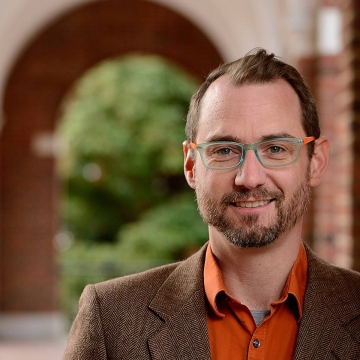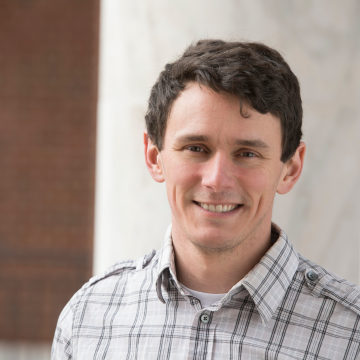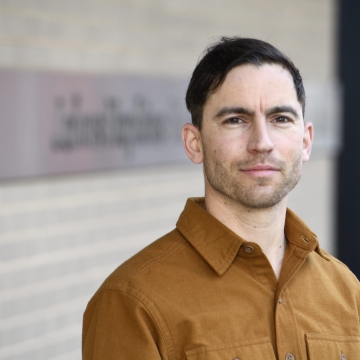Doctor of Philosophy (PhD) in Geography and Environmental Engineering
Offered By: Department of Environmental Health and Engineering (Whiting school of engineering)
Onsite | Full-Time | 5 years
About the PhD in Geography and Environmental Engineering Program
A PhD student in the Geography and Environmental Engineering program will explore the current state of knowledge in his or her field. Information and ideas developed by others are critically examined and placed in proper context.
Subject areas are identified that are important to achieving the goals of the discipline, but which have not been explored or developed. The student will propose new research to improve understanding in this key area. A research proposal should then outline, in an orderly and logical manner, how key questions are addressed. While pursuing these research hypotheses, the student must take time to consider alternative explanations for experimental observations, and devise new experiments that critically test assumptions and theories.
The student will learn to state problems clearly and solve them in a reliable and efficient manner. Whatever lines of reasoning one uses, one must be as sure as possible that the conclusions are correct, particularly since there is always some uncertainty in science and engineering. The student must think through their research plans to avoid unproductive activities. Because research involves managing time and resources, the PhD student is receiving excellent preparation for future professional work.
Students have the option to focus their study: Track in Environmental Sustainability, Resilience, and Health (ESRH).
Doctoral students in the Geography and Environmental Engineering doctoral program have the opportunity to learn from and collaborate with faculty from a wide variety of disciplines, including:
- Chemistry
- Air pollution and greenhouse gases
- Energy systems
- Public health
- Water quality
- Economic dimensions of environmental health
- Anthropological dimensions of environmental health
PhD in Geography and Environmental Engineering Program Highlights
Fully Funded
The minimum guaranteed 2025-2026 academic year stipend is $50,000, with a 4% increase the following year. Tuition, fees, and medical benefits are provided.
MULTIDISCIPLINARY
Opportunities to work across departments in the Schools of Public Health, Engineering, and more
WRITE AND PUBLISH
Help with academic writing and grant proposals embedded into coursework, with opportunities to learn from published faculty and peers
TEACHING TRAINING
Teaching assistantships, training, and support for learning to teach, and opportunities for paid TA positions as well
What Can You Do With a Graduate Degree in Geography and Environmental Engineering?
- Research or Teaching Faculty
- Research Scientist
- Environmental Engineer (water/wastewater engineer, hydrogeologist, ecologist)
- Data Scientist
- Postdoctoral Research
Curriculum for the PhD in Geography and Environmental Engineering
Browse an overview of the requirements for this PhD program in the JHU Academic Catalogue and explore all course offerings in the Whiting School Course Directory.
Admissions Requirements
For general admissions requirements, please visit the Graduate Admissions page.
Vivien Thomas Scholars Initiative
The Vivien Thomas Scholars Initiative (VTSI) is an endowed fellowship program at Johns Hopkins for PhD students in STEM fields. It provides full tuition, stipend, and benefits while also providing targeted mentoring, networking, community, and professional development opportunities. Students who have attended a historically Black college and university (HBCU) or other minority serving institution (MSI) for undergraduate study are eligible to apply. Vivien Thomas Scholars Initiative applicants for the PhD in Geography and Environmental Engineering are automatically vetted for eligibility for the VTSI fee waiver during the application process.

Faculty Advisers
The following faculty may be willing to advise PhD students. If you identify a faculty member that you want to work with who is not on this list, we encourage you to ask them about their availability.

Peter studies the chemical composition of gas particles in the air to improve our understanding of climate, air quality, and health impacts of pollutants.

Paul is a Bloomberg Distinguished Professor with joint appointments in the Department of Environmental Health and Engineering and the Carey Business School. He is known for his research on behavioral economics and the design and estimation of impacts of environmental programs.

Ciaran, an associate professor of landscape hydrology and Russell Croft Faculty Scholar, studies how the structure of landscapes controls the movement of water from rainfall to streams, and how that structure evolves over time.

Thomas Hartung, MD, PhD, steers the revolution in toxicology to move away from 50+ year-old animal tests to organoid cultures and the use of artificial intelligence.

Scot Miller combines satellite data and statistics to understand greenhouse gas emissions across the globe.

Roni Neff, PhD '06, ScM, researches ways to cut food waste and address climate change through more resilient, equitable, and healthy food systems.

Carsten's research focuses on the occurrence and fate of organic contaminants in the urban water cycle and their impact on environmental and human health.

Shilva's research focuses on innovative biotechnologies to produce bioenergy and biochemicals to substitute fossil fuel-based products, address environmental problems, and strengthen the bioeconomy.

Tuition and Funding
Per the Collective Bargaining Agreement (CBA) with the JHU PhD Union, the minimum guaranteed 2025-2026 academic year stipend is $50,000 for all PhD students with a 4% increase the following year. Tuition, fees, and medical benefits are provided, including health insurance premiums for PhD student’s children and spouses of international students, depending on visa type. The minimum stipend and tuition coverage is guaranteed for at least the first four years of a BSPH PhD program; specific amounts and the number of years supported, as well as work expectations related to that stipend will vary across departments and funding source. Please refer to the CBA to review specific benefits, compensation, and other terms.
Need-Based Relocation Grants
Students who are admitted to PhD programs at JHU starting in Fall 2023 or beyond can apply to receive a need-based grant to offset the costs of relocating to be able to attend JHU. These grants provide funding to a portion of incoming students who, without this money, may otherwise not be able to afford to relocate to JHU for their PhD program. This is not a merit-based grant. Applications will be evaluated solely based on financial need. View more information about the need-based relocation grants for PhD students.
Contact Us
Questions about the program? We're happy to help.
EHE-Academics@jh.edu
Compare Programs
- Check out similar programs to find the best fit.
- Doctor of Philosophy (PhD) in Environmental Health
- Doctor of Philosophy (PhD) in Earth and Planetary Science
